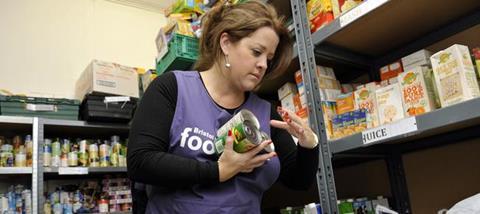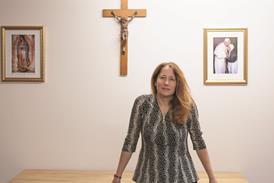
The stirrings of spring, the effectiveness of the vaccine, the plans for lockdown easing; this week has felt genuinely hopeful. For the first time in months, it doesn’t feel like we are just kidding ourselves that there is light at the end of the tunnel; It feels like we can actually see it.
Covid-19 has been tough for everyone. Christians have been no exception. Glitchy online services, squeezed finances, isolated congregations, much-loved church family members lost. There have been days of doubt and anger, where trust and peace have felt like a real battle.
This last year has been really painful for lots of us. But it has also been a time of incredible hope.
The Covid crisis hit and churches stepped up to the plate: they adapted and went online; they became hubs for food banks; and centres for the vaccine roll out. According to a report released last month by Your Neighbour, the Church has provided five million meals every month of lockdown to those in need. Many with dwindling congregations have seen their numbers swell, as churches have pulled together to provide for the needs of their communities. They have done an amazing job of responding to the crisis.
Providing long-term help
But where do we go from here? What about when the immediate crisis is over? Covid may come to an end but it’s devastating consequences are far from over. One in six new universal credit claimants are unable to afford enough food for their families. A study by The Legatum Institute last November revealed that almost 700,000 people had been driven into poverty by Covid, including 120,000 children. There will still be so many vulnerable, so many in need of hope.
There is a lot to be commended in the Church’s response to Covid, but there is also a lot to learn. It would be easy to keep firefighting, trying to meet the never-ending tide of people’s immediate needs. But now is a time to step back and reflect on how the Church can serve their communities for the long run.
Firstly, we need to assess our motivation. We need to ask ourselves if our efforts have become more about our ‘good works’ than about loving people like Christ did. It is people, not projects, that need to be at the heart of the Church’s response to poverty. We need to view the people we serve holistically and truly engage with what they need most.
Many people in poverty are unable to see beyond their current circumstances. I have visited schools in deprived areas across the UK and teachers report time and time again that the main problem they face is that children cannot see a sense of value in attainment. They feel trapped, without hope.
The Psalms are littered with reminders of God’s heart for the vulnerable and afflicted. But not just his heart for them, his commitment to them. Psalm 9:18 reads: “But God will never forget the needy; the hope of the afflicted will never perish.”
The Church has done incredible work in meeting immediate needs, and we must continue to do so. But now we need to step out from behind the coffee table or the food bank station to build relationships. We must take people on a journey. A journey from a place of survival to one of safety and security. A journey that gives them hope.
Working alongside others
Bringing hope and building relationships on top of what you are already doing may feel like a tall order in this time. And it is. But the Church doesn’t stand alone. If we are to focus on effectively meeting the long-term needs of the vulnerable, we need to do it alongside the rest of our communities. The Church is a vital part of the picture. But it is still only part of the picture.
The Church is a vital part of the picture. But it is still only part of the picture
One of the most encouraging impacts of lockdown has been churches working with organisations across the community to help the vulnerable, and take them on this journey of hope. In a survey of more than 900 churches, over 90 per cent of churches have been helping the vulnerable during lockdown and 72 per cent have been working in partnership with the council, charities or other churches. This is a phenomenal statistic, and something that needs to continue and grow when lockdown is over.
We need to reach out to the councils and charities in our local area. To listen with humility to the needs they are seeing around them and the gaps there are in resources and provision. That is the vision of The Halo Centre, recently opened in Coventry. This centre hopes to be one of many across the UK that equips not just churches but entire communities. Creating a symphony of churches, projects and council to impact the city for good.
If we are going to reflect God’s heart for the vulnerable, we need to lay aside our individual reputations as churches; we must trust him, build relationships and partner with others. That is how the Church will bring the hope of God into the lives of broken people. What can you do in your neighbourhood?
Gwyn Williams is UK operations director for Feed the Hungry for the last ten years. If you would like to chat to him about building transformational communities in your village, town or city contact him at Gwyn@feedthehungry.org.uk
Premier Christianity is committed to publishing a variety of opinion pieces from across the UK Church. The views expressed on our blog do not necessarily represent those of the publisher.




























